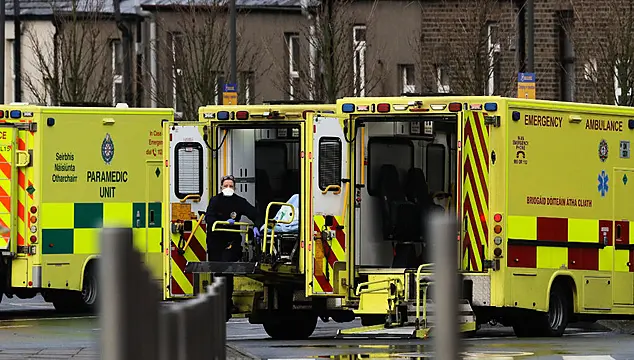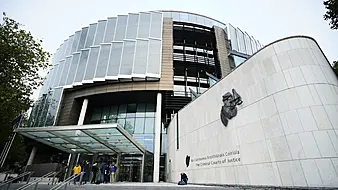The Irish health system remains under “very serious pressure”, the head of the HSE has warned an Oireachtas committee.
Paul Reid appeared before the Joint Committee on Health on Wednesday to discuss the plans to support the health service through the winter.
He said: “We are now firmly in the midst of a fourth surge in Covid-19 infections.
“The entire health system, both acute hospitals and community, are now under very serious pressure.”
“Last Monday week I briefed the Cabinet Sub-Committee on Covid-19 on the seriousness of the situation.
“The Government responded with a number of public health measures.
“It has also been necessary for the HSE to take immediate measures in response to hospital and ICU pressures, including the short-term prioritisation of unscheduled care, and increasing our surge capacity through providing additional beds, particularly in ICU.
210,000 #COVID19 lab tests completed in the past 7 days.600,000 boosters & 3rd doses administered now.We're surging up on ICU beds & managing huge pressures all across healthcare. 5,800 staff now out on Covid related absence. The public's understanding is appreciated. @HSELive
— Paul Reid (@paulreiddublin) November 24, 2021
“I know that the resurgence of the virus, and the response now required, will place even more pressure on staff.”
Another 3,666 cases of Covid-19 in Ireland were confirmed on Tuesday.
According to the latest figures, there are around 638 patients in hospital with coronavirus, 130 of them in intensive care.
Earlier, Mr Reid tweeted that 5,800 staff are out due to a Covid-19-related absence.
“We’re surging up on ICU beds & managing huge pressures all across healthcare,” he said.
“The number of cancellations and non-booking of planned surgery has been growing, due to the growing incidence of Covid-19 in hospitals,” he warned politicians on Tuesday.
Around 210,000 Covid-19 lab tests have been completed in the past seven days in Ireland.
In the Dail on Tuesday, Taoiseach Micheal Martin fielded concerns raised by multiple opposition politicians that PCR test capacity is proving inadequate in the face of the fourth wave of the virus.
Many pointed to the fact that in much of the country it is hugely difficult to access a PCR test.

“The winter season in any year presents additional challenges to all health systems around the world with the combination of seasonal viruses, weather-related trauma and illness, longer periods spent indoors with lower levels of ventilation, and seasonal social activity-related presentation,” Mr Reid told the committee.
“Pressures associated with winter of 2021-22 are further compounded by the massive increase in Covid-19 infections we are currently experiencing, and the resulting presentations in our emergency departments and onward into our wards and, critically, our intensive care units.
“Emergency departments continue to operate distinct pathways of care for Covid and non-Covid patients, and this places a huge demand on staffing and space available.”
Mr Reid said the winter plan will aim to ensure that all patients get the necessary treatment, as well as tackling waiting lists.
The HSE, he said, “will focus on avoidance of hospital admittance unless absolutely necessary”.
He added that extra Government funding of 200 million euro to support access to care next year “will be targeted at working through these lists as quickly as possible by making the best use of our own capacity, supplemented and by making arrangements for a substantial number of procedures to be carried out through the contract arrangements with private hospitals”.







